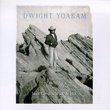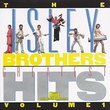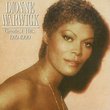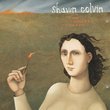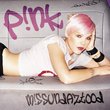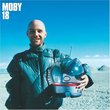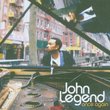| All Artists: Isley Brothers Title: Givin It Back Members Wishing: 2 Total Copies: 0 Label: Sony Original Release Date: 1/1/1971 Re-Release Date: 7/8/1997 Genres: Pop, R&B Styles: Funk, Soul Number of Discs: 1 SwapaCD Credits: 1 UPCs: 074646522226, 074646522240, 5099748751324 |
Search - Isley Brothers :: Givin It Back
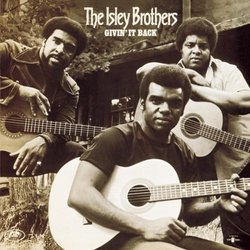 | Isley Brothers Givin It Back Genres: Pop, R&B
|
Larger Image |
CD DetailsSimilarly Requested CDs
|
Member CD ReviewsReviewed on 2/6/2010... The Brothers Isley leave their trademark sound on these covers!
CD ReviewsThe middle part of their second phase... David Wayne | Santee, CA United States | 12/24/2002 (5 out of 5 stars) "The reviewer below who tried to judge a book by it cover, obviously didn't get it. The Isleys had already made history by the time this album debuted in 1971. Their prolonged workout on "Shout" (1959) cemented the path from Gospel to Soul. And their cover of "Twist And Shout" from 1962 was both funky and cool and inspired The Beatles' OWN cover version. The brothers' (O'Kelly, Rudolph, and Ronald) search for fame, fortune, and independence led them to Motown Records in the mid-sixties. While they were only a second-line act there, The Isleys learned a lot about the workings of a Black-owned record label. They also recorded another classic, "This Old Heart Of Mine." Toward the end of the sixties, they launched their own label, T-Neck, with the smash hit "It's Your Thing." The album that followed, The Brothers Isley, neatly closed the book on the group's soul years. With the 1970 release, Get Into Something, the brothers ditched their suits in favor of "hip" new clothes, and their new music showed the influence of Sly Stone and Jimi Hendrix. Now they were ready to CHANGE history. Joining the group for this new phase were younger brothers Ernie (guitars), and Marvin (bass) and brother-in-law Chris Jasper (keyboards). Giving It Back was the next step in the group's evolution. The guys had established a fresh new sound, for a new decade. Now they would use this new approach to tackle songs (and issues) that White kids were listening to and concerned with. "Ohio/Machine Gun" was a biting commentary on the tragic riot at Kent State University. The drums alternate between a military cadence and rapid-fire drumrolls that simulated gunfire. Add in the incendiary guitar work of Hendrix disciple Ernie, and you had a song that sounded like it was recorded on the front lines of a war zone! On "Fire and Rain" and "Lay, Lady, Lay" they showed their understanding that the changing times were having a devastating effect on people and their relationships. They latch on to "Thought I'd See You/Thought I'd See You Again" on "Fire And Rain" and keep this statement of confusion in the forefront. The cover of "Spill The Wine" illustrated how in touch The Isleys were with other musicians on the cutting edge. Eric Burdon (of Animals fame) had a hit with the song fronting the band War, another Sly-influenced act that was the first successful Black band to reflect the saturation of British Invasion acts in American rock music. The Isleys' version "gives this song back" to Black listeners (and thus inspired the name of the album). The closing number, a cover of Stephen Stills' post-Woodstock classic, "Love The One You're With," puts the brothers right back in the church, where they are clearly celebrating their ability to take these songs and make them their own. The Isley Brothers would no longer be a vocal group, but a self-contained musical unit that was grounded in the foundation of more than a decade of paying dues on the Chitlin' Circuit, and of the profound musicality of the younger members. One more album (Brother, Brother, Brother) would complete this second era in Isleys history. That album was so full of hits ("Pop That Thing" "Work To Do" "Lay-Away" and a testifying take on Carole King's "It's Too Late" that would have fit in nicely on Giving It Back), that when The Isleys shopped for a new marketing deal for their label, CBS opened up the check book. "Who's That Lady" followed, and by then all six members of The Isley Brothers were pictured on the cover of the new album, 3+3. They were a band now. They had arrived. Giving It Back was in important step in that journey and, in retrospect, a turning point in the career of the Isley Brothers." Between The Covers DEAN M. Dent | SAN LEANDRO, CALIFORNIA USA | 10/11/2003 (5 out of 5 stars) "Luther Vandross' amazing cover of Stephen Stills' Love The One You're With(from the Songs album) was inspired by The Isley Brothers classic reinterpretation.Even before "Lutha" recorded a covers album,Giving It Back was the brothers re-interpreting songs associated with rock musicians,and turning them into R&B classics.
Their melding of Crosby,Stills,Nash,and Young's Ohio and the Isley's former sideman Jimi Hendrix's Machine Gun is nothing short of amazing as well as their observation to the times.The sensuous treatment of Lay,Lady Lay is a far cry from Dylan's contrified original,and where Eric Burden spoke the words to Spill The Wine,Ronald Isley sings it in his signature tenor,transforming it into an altogether new song.He also nails the deep sadness that James Taylor's Fire and Rain brings to listeners. If this album has any flaws,is that it took too long to be reissued,thus nearly burying this creative phase of the Isley Brothers music.Where most would pick 3+3 or The Heat Is On as classic studio recordings,Givin' It Back and Brother,Brother,Brother are just as essential." |

 Track Listings (7) - Disc #1
Track Listings (7) - Disc #1